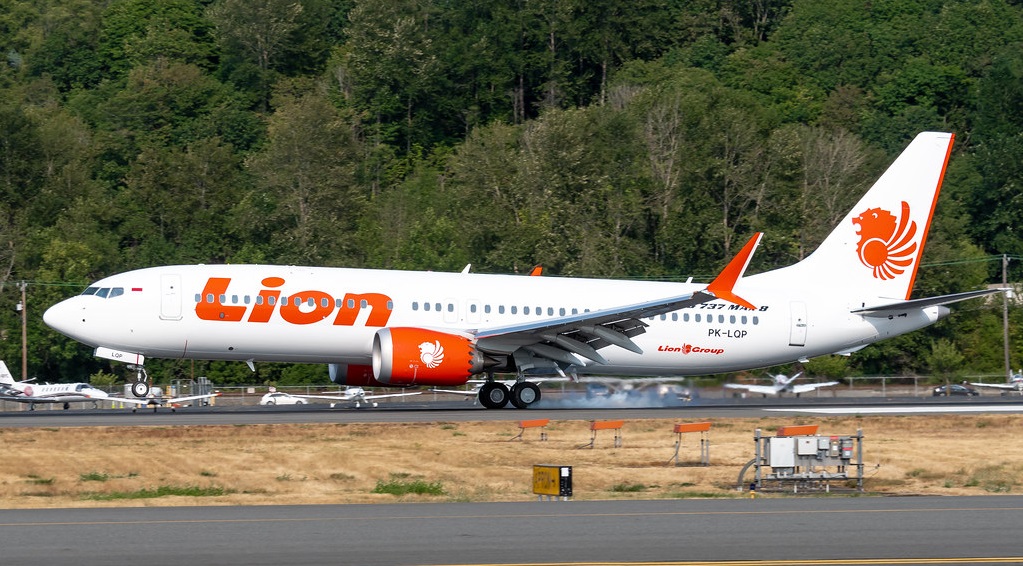Estimated reading time 4 minutes, 40 seconds.
Oct. 29, 2019 marks one year since Lion Air Flight 610 crashed into the sea just off Jakarta, Indonesia, claiming the lives of all 189 people on board.

Immediately after the horrific accident, the world was stunned. What could have caused a two-month-old, state-of-the-art Boeing 737 Max 8 aircraft to crash just 13 minutes after takeoff? It seemed incomprehensible.
In the 12 months following the crash, a number of revelations have revealed a series of problems and oversights relating to the design, manufacture and subsequent regulatory approval of the Boeing 737 Max family of aircraft.
In its final report into the Lion Air Flight 610 accident, issued on Oct. 25, 2019, Indonesia’s National Transportation Safety Committee (KNKT) identified a number of factors it said contributed to the tragic incident. Among them were incorrect assumptions made during the design and certification of the Boeing 737 Max, faulty maintenance, and an overwhelmed flight crew battling an unfamiliar system that was not adequately documented.
The report said that initial assumptions made by Boeing about how a flight crew would respond to an uncommanded activation of the Max’s Maneuvering Characteristics Augmentation System (MCAS) — designed to automatically lower the nose of the aircraft if it detected an approaching stall — were erroneous.
Based on those incorrect predictions and “an incomplete review of associated multiple flight deck effects, MCAS’s reliance on a single [angle of attack, or AOA] sensor was deemed appropriate and met all certification requirements,” said the KNKT.
But in the case of the Lion Air aircraft, that single sensor was faulty.
Investigators believe the flight crew was startled by the erroneous MCAS deployment and lacked an understanding of the new system that would have increased their “chances of being able to mitigate the consequences of multiple activations in the accident scenario.”
Responding to the KNKT accident report, Boeing said in an Oct. 25 statement that it is addressing the safety recommendations made in the report “and taking actions to enhance the safety of the 737 Max to prevent the flight control conditions that occurred in this accident from ever happening again.”
The Chicago-based manufacturer has been working on design changes to the 737 Max for the past several months.
“Most significantly, Boeing has redesigned the way angle of attack (AOA) sensors work with a feature of the flight control software known as Maneuvering Characteristics Augmentation System (MCAS),” reads the company statement.
“Going forward, MCAS will compare information from both AOA sensors before activating, adding a new layer of protection. In addition, MCAS will now only turn on if both AOA sensors agree, will only activate once in response to erroneous AOA, and will always be subject to a maximum limit that can be overridden with the control column.”
Boeing said it is also updating manuals and pilot training materials to ensure that all crewmembers are properly trained to respond to an MCAS deployment.
Meanwhile, the company’s president and CEO, Dennis Muilenburg, is scheduled to appear today at a U.S. Senate Committee hearing in Washington, D.C., which is titled, “Aviation Safety and the Future of Boeing’s 737 Max.”
In his opening statement — released in advance by Boeing — Muilenburg will tell the committee that “robust software improvements” will prevent MCAS from being triggered by a single sensor and activated repeatedly.
“When the 737 Max returns to service, it will be one of the safest airplanes ever to fly,” he asserts.
Read the full text of Muilenburg’s opening statement here.
Update: Watch Boeing CEO Dennis Muilenburg speak to Congress on Oct. 29, 2019.








